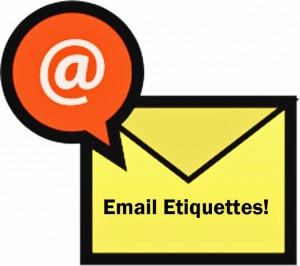
Email is widely used, but for your real estate business, you'll want to follow a number of highly important rules and guidelines.
By Peter Ricci
According to Pew Research, as of April 2012, 82 percent of all American adults ages 18 and older use email; 67 percent do so on a daily basis; and, for the first time in Pew’s surveys, more than half of Americans age 65 and older use email, a significant gain from years past.
Those stats should tell you something – as real estate agents, you should be utilizing email to communicate with your clients and leads. However, email, much like message boards and text messages, is governed by a series of rules and guidelines, and in part two of our series on tech etiquette, we explore what those rules are and why they matter.
Using Email in Your Real Estate Business
Composition – This one is pretty basic, but important all the same – please use complete sentences, proper grammar and capitalization in your emails! Sending an email may be simple and quick, but that should not mean compromising on the fundamentals of composition. This will be particularly important when reaching out to leads and making a solid first impression.
Language – Additionally, you’ll want your language to be professional and formal. Any slang or abbreviations should be left at the door, and though we do not recommend completely banishing emoticons, we do preach caution on using them.
Formatting – This may be the most important guideline of all. Your emails should be clean and well-formatted, with an easy-to-read font (Helvetica, Arial and Times are great choices), short paragraphs, and – we’re being serious here – no colors other than black. You would not believe how many emails we see with multicolored textual displays! Trust us on this one, you do not look creative with purple or blue text; you look insane.
Also, be sure to include a signature at the end of your email with contact information.
Ground Rules – Email is wonderfully convenient, but it’s rife for misunderstanding, especially when it comes to responses. A client could send you a message early in the morning and take offense when you respond later than he or she anticipated, regardless of why you responded when you did; therefore, lay the ground rules with your clients on when you’ll respond to their emails, so they have proper expectations on when to hear back from you.
